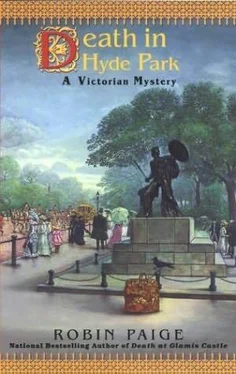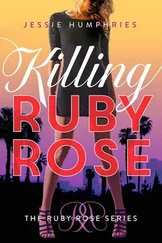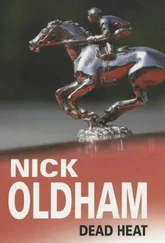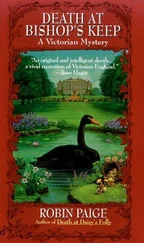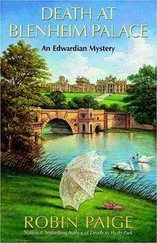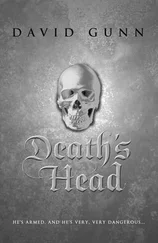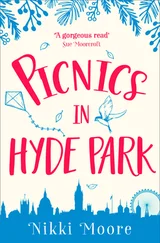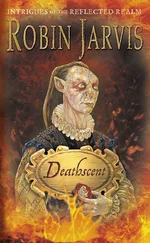Robin Paige - Death in Hyde Park
Здесь есть возможность читать онлайн «Robin Paige - Death in Hyde Park» весь текст электронной книги совершенно бесплатно (целиком полную версию без сокращений). В некоторых случаях можно слушать аудио, скачать через торрент в формате fb2 и присутствует краткое содержание. Жанр: Классический детектив, на английском языке. Описание произведения, (предисловие) а так же отзывы посетителей доступны на портале библиотеки ЛибКат.
- Название:Death in Hyde Park
- Автор:
- Жанр:
- Год:неизвестен
- ISBN:нет данных
- Рейтинг книги:5 / 5. Голосов: 1
-
Избранное:Добавить в избранное
- Отзывы:
-
Ваша оценка:
- 100
- 1
- 2
- 3
- 4
- 5
Death in Hyde Park: краткое содержание, описание и аннотация
Предлагаем к чтению аннотацию, описание, краткое содержание или предисловие (зависит от того, что написал сам автор книги «Death in Hyde Park»). Если вы не нашли необходимую информацию о книге — напишите в комментариях, мы постараемся отыскать её.
Death in Hyde Park — читать онлайн бесплатно полную книгу (весь текст) целиком
Ниже представлен текст книги, разбитый по страницам. Система сохранения места последней прочитанной страницы, позволяет с удобством читать онлайн бесплатно книгу «Death in Hyde Park», без необходимости каждый раз заново искать на чём Вы остановились. Поставьте закладку, и сможете в любой момент перейти на страницу, на которой закончили чтение.
Интервал:
Закладка:
Hodge’s telegram assured Kate that the doctor felt Patrick to be in no danger, but she knew she wouldn’t be easy in her mind until she saw him for herself, and if she went home, she could put the time to good use by working on her manuscript. Anyway, there was no purpose to her staying in the City, for it was clear that she could not find Charlotte Conway unless the girl wanted to be found. She could be anywhere in the vast city of London, and looking for her on the streets would be like looking for the proverbial needle in a haystack. Perhaps Charlotte would contact Nellie or Helen Rossetti or even Mrs. Conway, and Kate had made sure that each one of them knew how to get in touch with her. If Charlotte turned up, and if there was something she could do to help the girl, she could always go back to London.
On Tuesday afternoon, Charles and Edward Savidge went to New Scotland Yard, to the newly-established fingerprint department. There, they met with Sergeant Collins, who had been appointed and trained by Assistant Commissioner Henry as the Yard’s chief fingerprint expert. The evidence, now boxed and labeled with a caution against handling, had been moved from the evidence locker to Collins’s office.
Sergeant Collins pulled on a pair of thin cotton gloves and opened the box. He took out a three-inch stack of Anarchist literature, all appearing to be copies of the same meeting notice, and several books, one by Prince Kropotkin, two others by Mikhail Bakunin. Next, he took out a much-folded sheet of cheap paper, clearly a letter, handwritten in French.
“Found in Mouffetard’s pocket,” he said, handing it to Savidge. To Charles he said, “No point in testing for fingerprints, not on that rough paper.”
Savidge unfolded the letter and read it. “I’d like to copy this,” he said.
The sergeant nodded and took out a bottle of what appeared to be a clear, viscous liquid, bearing the label Dr. Gabriel’s Pure Medicinal Glycerine. “Found in the newspaper office, on a shelf,” he said, setting it on the table.
Finally, he took out three ginger-beer bottles, one at a time, very carefully. The long-necked, champagne-shaped bottles were made of stoneware (as was usual with ginger-beer bottles, which were meant to be returned and refilled), the neck colored brown, the rest of the bottle plain salt-glazed, with the manufacturer’s name and bearded likeness impressed on the front. The bottles, each one capped with a screw-in stopper, appeared to be half full of a noxious-smelling liquid substance, identified by the Yard chemist, Sergeant Collins reported, as nitric acid. A square white evidence label had been applied to the back of each bottle. On it was written in ink the time and place the bottle was collected and the name Finney, the officer who had brought it in.
Savidge sat down to copy the letter into his pocket notebook. Charles watched as Collins dusted the four bottles with charcoal powder. A few prints showed quite clearly on the glazed surface, and these the sergeant photographed. Then he began to study the bottles, comparing the fingerprints on them to the inked prints of the jailed men, obtained from Holloway Prison.
“Any matches?” Charles asked, peering over the sergeant’s shoulder. He had worked with Collins before, and had a great deal of respect for him. The man was, by now, the Yard’s resident fingerprint expert.
“With your boys’ prints?” Collins asked, putting down his magnifying glass. “No, I don’t see any matches,” he said slowly, then added, “But that doesn’t mean they haven’t handled these items, of course. The police who picked ’em up obviously didn’t give a thought to preserving possible fingerprint evidence.” He sighed heavily. “They never do, y’know. It’ll take a couple of convictions and a great deal of training before anybody pays attention. The prints on the bottles probably belong to the officers who brought them in.”
Savidge stood. “This means, of course,” he said into Charles’s ear, “that we’ll ask for a continuance until after the Jackson trial.” To Collins, he said, “I should like to fingerprint all the officers who have handled the bottles. Can that be arranged?”
“No need, sir,” Collins said cheerfully. “When Assistant Commissioner Henry took charge of CID, he ordered that every policeman’s fingerprints be taken, for the purpose of exclusion. They’re all on file. You and Lord Sheridan are welcome to come in and have a look.”
“Splendid,” Savidge said, “although it won’t do much good for me to examine them. That’s Lord Sheridan’s bailiwick.”
Charles, also wearing gloves, was taking another look at the four bottles, carefully turning them as they sat on the table, inspecting them from every angle to be sure that Collins had photographed all the prints. On the bottle that had been collected from Gould’s room, he noticed half of a black-dusted print at the left edge of the label.
“This partial print here,” he said. “Is the rest of it on, or under, the label, do you think?”
“On top, I’d guess,” Collins said, glancing at it. “But the label has a matte surface. Doubt if it would take a print.”
Charles took out his penknife, raised the left edge of the label and said, “Whiff a little of that dust here.”
It took only a moment to see that the print extended under the label. Collins was about to remove the label to photograph the print when a fourth man walked in, thickset and wearing brown tweeds and a brown derby. Collins looked up. “Good afternoon, Inspector Ashcraft,” he said.
Charles gave the man an appraising look. Charlotte Conway had said he was out to make a name for himself, Wells had called him a “rather obsessive fellow,” and Rasnokov had suggested that he did not play straight. These were qualities that might well make him a valuable man to Special Branch.
“What’s this?” the man demanded angrily. He threw his hat on the table and glared at Collins. “Why are you removing that label, Collins? That’s police property you’re tampering with! It should have stayed in the evidence locker.”
“But, sir,” Collins protested, “I was only going to-”
“I don’t care what you were going to do. Those bottles are evidence in the Hyde Park case. They are not to be meddled with.”
“Sir,” Collins said quietly, “I very much need to-”
“Who gave you leave?” Ashcraft demanded, obviously in a foul temper. He looked at Savidge and Charles. “And who the blazes are these men? No one’s applied to me for-”
“Assistant Commissioner Henry gave leave, sir,” Collins replied, with the air of a man who knows when he’s defeated. “This is Lord Charles Sheridan, who had the management of the fingerprint project at Dartmoor. And Edward Savidge, the barrister for the defendants-”
“I don’t care who the devil they are,” Ashcraft snapped, “they’ve no business messing about with evidence.”
“We are hardly ‘messing about,’ Inspector,” Savidge retorted. “As barrister for the defense, I have the right at any time to examine the evidence against my clients, and to submit it to expert analysis. Lord Sheridan, whose expertise in fingerprint analysis has already been recognized by the Home Office, is serving in that capacity.”
“Fingerprints,” Ashcraft said in a disdainful tone. He gave a loud snort. “See that those bottles are handled carefully, Sergeant. The contents must not be spilled on any account.”
Savidge took out a notebook. In a measured voice, he said, “Please be so good, Inspector, as to give me the names of the officers who collected the bottles. They will testify for the Crown, I assume.”
“Finney was in charge,” Ashcraft replied sulkily. “He was assisted by Perry and Cummings.”
Читать дальшеИнтервал:
Закладка:
Похожие книги на «Death in Hyde Park»
Представляем Вашему вниманию похожие книги на «Death in Hyde Park» списком для выбора. Мы отобрали схожую по названию и смыслу литературу в надежде предоставить читателям больше вариантов отыскать новые, интересные, ещё непрочитанные произведения.
Обсуждение, отзывы о книге «Death in Hyde Park» и просто собственные мнения читателей. Оставьте ваши комментарии, напишите, что Вы думаете о произведении, его смысле или главных героях. Укажите что конкретно понравилось, а что нет, и почему Вы так считаете.
